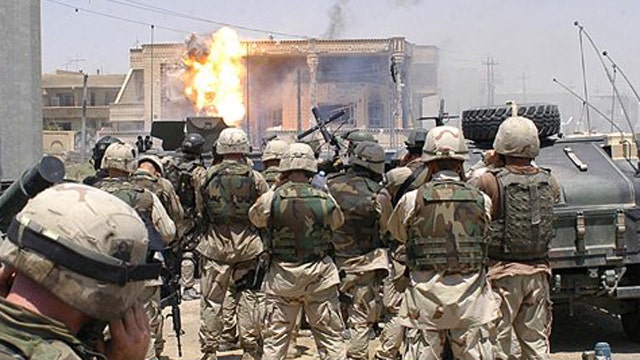Edited by Victoria Denholm

It’s been 10 years since the U.S. invaded Iraq as a part of an international coalition. This intervention was carried out — reportedly — to prevent the spread of weapons of mass destruction, cut off aid to terrorist groups and to liberate the Iraqi people. However, such weapons and links to terrorist groups were never found, leaving a stain on the credibility of Western leadership, particularly that of the United States.
The discrepancy between the alleged motives of the intervention and the true agendas of some involved has generated a distrust that fractured the Western community in 2003 and continues to divide it, as was made evident recently in Libya, Syria and Mali.
The second lesson learned in Iraq is that it costs less to overthrow a regime than it does to replace it with a sustainable one. Depending purely on its military might, the coalition found itself without plans for what to do the day after their victory and without the cultural know-how necessary to understand the complexity of such a task. The dismantling of the regime created an absence of power that the limited coalition troops couldn’t control; the chaos and pillaging gave way to the insurgency and to a civil war that was prolonged for years to come.
Under these conditions Iraq’s reconstruction was delayed despite the efforts and investment from a community of donors and now, 10 years later, Iraq still hasn’t reached the expected level of governing, public services or infrastructure that the intervention promised.
Through Iraq and Afghanistan you would think the limits of military intervention would have been learned by now: Good will alone isn’t enough when there is a large lack of resources, time and a political perseverance that Western societies simply don’t practice. Nevertheless, some politicians and military leaders continue to recommend further intervention in Libya and Syria.
A further lesson from the military experience is that the enemy doesn’t always practice the type of warfare you are expecting. In Iraq, militants responded quickly with an armed insurgency which coalition soldiers were unprepared for. The occupying forces, followed by multinational ones, were forced to put themselves on the defensive and, little by little, stop fighting until they could abandon the territory. To do this, the U.S. forces had to change their strategy and overall attitude by increasing the number of troops and fighting side by side with the Iraqi soldiers they were there to replace.
They also learned not to arm groups they can’t control, be it Sunni militants or regular ones, because the mix of fanaticism, radicalism and weapons in the hands of groups not controlled by the state is — no pun intended — explosive. We’ve gone from an increase in troops and military operations to the use of drones and special covert operations which are just as lethal but have a “light footprint,” and yet there are still those who want to execute sanctions and embargoes.
.
Another lesson is that it’s much easier to draw up a list of fundamental rights and freedoms than it is to actually put them into practice. The pressure from the West for democratization rarely takes form on a local level. As a result, the international community lost its ability to impose any structural transformations or introduce content that gave an indication of progress, like the drafting of a constitution or the holding of political elections which — to be clear — would allow them to call an end to this intervention. Instead 10 years later, the rights and freedoms for Iraqis are little more than words on paper.
It has cost lots of time and effort to learn these lessons. Ten years ago, the fall of the Iraqi regime allowed for Shiite expansionism to destabilize the Middle East. Those who didn’t learn the lesson then now want to reopen Pandora’s box and give wings to a Sunni expansionism. If history repeats itself, the next decade will surely be “entertaining.”

Leave a Reply
You must be logged in to post a comment.